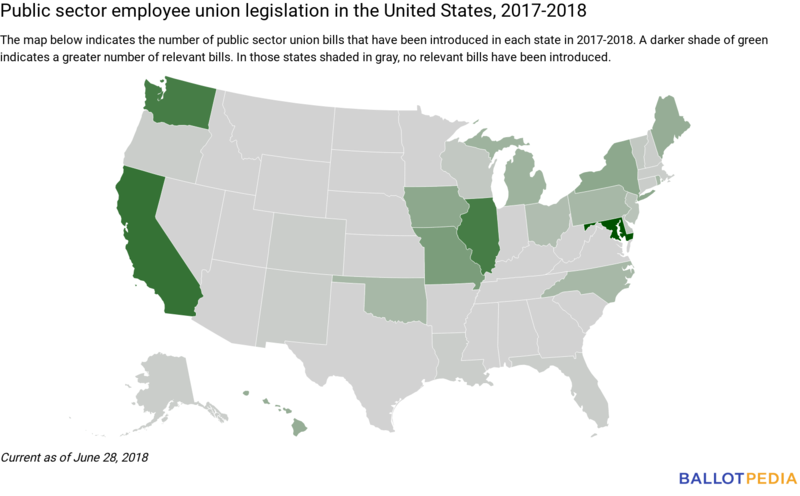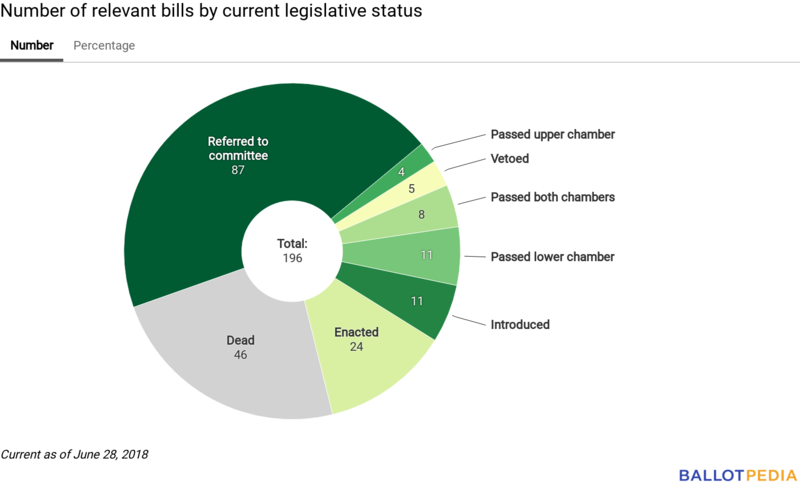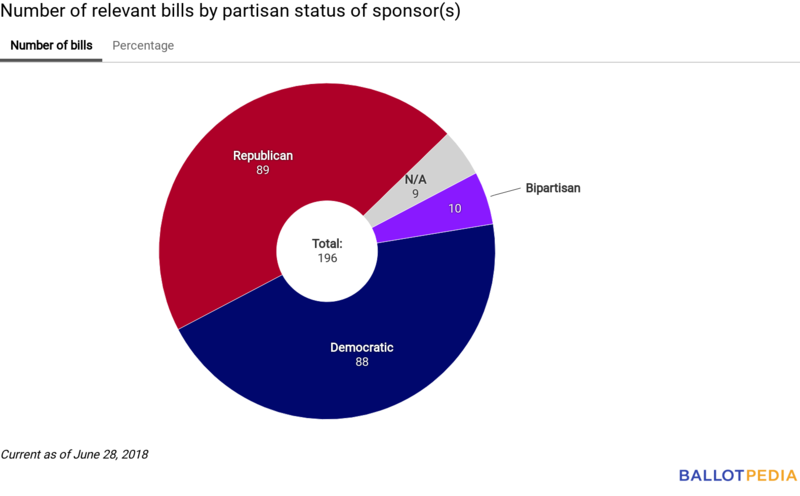Union Station: June 28, 2018
On Wednesday the U.S. Supreme Court issued its ruling in Janus v. American Federation of State, County, and Municipal Employees (Janus v. AFSCME), a case challenging the constitutionality of public sector employee union agency fees (i.e., fees required of non-members to cover the costs of non-political union activities). The court’s 5-4 decision overturned the precedent established in Abood v. Detroit Board of Education that public sector unions can require employees to pay agency fees.
According to the Bureau of Labor Statistics, unions represented nearly 8 million public sector workers in 2017 -- 37.9 percent of the total public sector workforce. Of this total, 7.2 million were union members; the remaining employees were described by the BLS as "workers who report no union affiliation but whose jobs are covered by a union" (this would include individuals who were required to pay agency fees). Conversely, unions represented 7.3 percent of private sector workers. The high rate of public sector unionization gives those unions considerable political influence at the local, state, and federal levels.
Writing for the majority, Associate Justice Samuel Alito said the following:
"Abood was poorly reasoned. It has led to practical problems and abuse. It is inconsistent with other First Amendment cases and has been undermined by more recent decisions. Developments since Abood was handed down have shed new light on the issue of agency fees, and no reliance interests on the part of public-sector unions are sufficient to justify the perpetuation of the free speech violations that Abood has countenanced for the past 41 years."
Chief Justice John Roberts and Associate Justices Anthony Kennedy, Clarence Thomas, and Neil Gorsuch concurred with Alito’s opinion.
In a dissent, Associate Justice Elena Kagan, joined by Associate Justices Ruth Bader Ginsburg, Stephen Breyer, and Sonia Sotomayor, wrote, "Rarely if ever has the Court overruled a decision—let alone one of this import—with so little regard for the usual principles of stare decisis." Kagan said Abood was a workable and "deeply entrenched” precedent both in the law and the real world. "The balance Abood struck between public employers’ interests and public employees’ expression is right at home in First Amendment doctrine," Kagan said.
In anticipation of this ruling, state legislatures have been considering bills relating to public sector employee unions. Ballotpedia is tracking those bills, highlighting national legislative trends, and providing a sampling of commentary surrounding the subject.
What people are saying
In opposition to Janus:
| “ | Janus uproots an entrenched principle of labor law. Since passage of the National Labor Relations Act in 1935, collective bargaining has incorporated the principle of majority rule: when employees vote by a majority to be represented by a union, the union has a legal duty to represent everyone, members or not.
The union's duty extends even to representing nonmembers individually -- for instance, if they are unfairly fired. To prevent free riders from bearing the fruits of union representation without paying a penny for it, federal law governing the private sector, as well as state law governing the public sector in nearly half the states, approves charging nonmembers a 'fair-share' fee. … Writing for the majority, Justice Samuel Alito finds that the fair-share fee 'violates the free speech rights of nonmembers.' The decision, in effect, requires union members to subsidize services to nonmembers.[1] |
” |
| —Craig Becker, general counsel to the AFL-CIO, in an op-ed for CNN.com | ||
In favor of Janus:
| “ | In its 5-4 ruling Wednesday in Janus vs. AFSCME, the Supreme Court overturned decades-old precedent that allowed government unions to require public employees to pay union fees or risk being fired.
Now millions of teachers, police officers, firefighters and other government employees across the country gain the freedom to decide if paying a union is a worthwhile proposition. This is how it should have always been – no one should be forced to finance an organization he or she disagrees with. The Supreme Court found that forcing public employees to pay union fees as a condition of employment violates the First Amendment of the Constitution. This is because government unions are inherently political. Collective bargaining in the public sector is no different from lobbying by any other special interest group. Subjects of bargaining in the public sector – like pay, tenure, and pension funding – are political choices that no worker should be forced to finance.[1] |
” |
| —Trey Kovacs, labor policy analyst for the Competitive Enterprise Institute, in an op-ed for FoxNews.com | ||
What we've been reading
- Washington Examiner, "Supreme Court's Janus ruling finally gives a voice to 5M workers," June 27, 2018
- Los Angeles Times, "California's politically powerful labor unions have been preparing for this Supreme Court ruling for a long time," June 27, 2018
- SCOTUSblog, "Opinion analysis: Court strikes down public-sector union fees," June 27, 2018
- Illinois Policy, "Moody's: Janus Win Potentially Credit Positive for Illinois," June 27, 2018
- The New Yorker, "As Kennedy Retires, The Supreme Court's Attack On Labor Unions Is A Sign Of Things To Come," June 27, 2018
- The Hill, "Janus could destroy some public-sector unions, and that's a good thing," June 27, 2018
The big picture
Number of relevant bills by state
As of June 28, 2018, we are tracking 196 pieces of legislation dealing with public sector employee union policy. No new bills were added this week. On the map below, a darker shade of green indicates a greater number of relevant bills. Click the map for complete information.
Number of relevant bills by current legislative status
Number of relevant bills by partisan status of sponsor(s)
Recent legislative actions
The following major legislative actions occurred in the last week:
Below is a complete list of legislative actions on relevant bills in the past week. Bills are listed first by state and then by bill number. Because some state bill tracking systems are not updated in real time, some action may have occurred more than a week ago.
- California AB1937: California law authorizes some public sector labor unions to request payroll deductions for union fees and dues. This bill would extend that authority to public sector labor unions representing employees of the Regents of the University of California, the Judicial Council, counties, cities, and public authorities.
- On June 25, 2018, the Senate Committee on Public Employment and Retirement recommended the bill be passed and sent it back to the Senate Appropriations Committee. The legislation cleared the Assembly May 30, 2018.
- California AB2017: This bill would expand the definition of "public employer," in the context of the state's labor laws, to include employers of excluded supervisory employees and the Judicial Council not already covered by existing laws. The bill would also prohibit public employers from discouraging prospective employees from becoming union members.
- On June 25, 2018, the Senate Committee on Public Employment and Retirement recommended the bill be passed and sent it back to the Senate Appropriations Committee. The legislation cleared the Assembly April 23, 2018.
- California AB2049: This bill would authorize school districts and community colleges to rely on labor unions when determining whether a request to discontinue payroll deductions for union dues is in conformity with the requirements established in the initial payroll deduction authorization.
- On June 25, 2018, the Senate Committee on Public Employment and Retirement recommended that the bill be passed and sent it back to the Senate Appropriations Committee. The legislation cleared the Assembly May 29, 2018.
- Rhode Island H7377: This bill would authorize municipal police unions to decline to represent employees in grievance/arbitration proceedings if those employees were not members of the collective bargaining unit within 90 days of the event precipitating grievance/arbitration proceedings.
- On June 21, 2018, the Senate passed a substitute bill in concurrence. The House approved the legislation June 5, 2018.
- Rhode Island S2158: This bill, which is similar to H7377, would authorize municipal police unions to decline to represent employees in grievance/arbitration proceedings if those employees were not members of the collective bargaining unit within 90 days of the event precipitating grievance/arbitration proceedings.
- On June 19, 2018, the Senate passed a substitute bill. The House approved the substitute bill June 22, 2018.
See also
| |||||||||||||||||||||||





